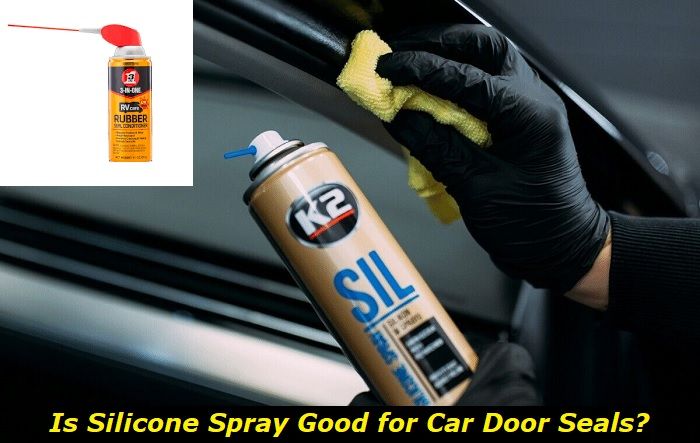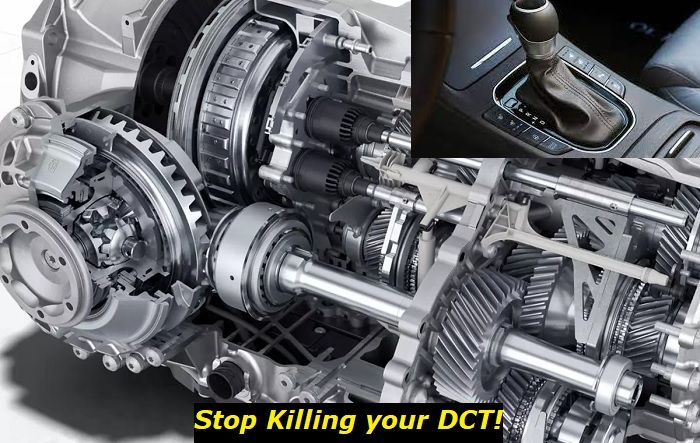CVT transmissions are basically two conic elements joined by the band (usually the belt). They send the torque and power through them from the engine to the wheels of your car by adjusting the position of the belt.
Unfortunately, these transmissions are usually way less reliable than conventional automatic transmissions. That's why they usually live well up to 100,000 miles. After that, they become kind of a lottery. You never know when a disaster may happen.
.jpg)
While some types of CVTs are more or less good, some of them are just rubbish. And in this article, I want to recap what I've been writing about before and give you links for further investigation.
Toyota CVT transmissions
First of all, I need to tell you that Toyota's CVT gearboxes are well above average in terms of their quality. They may easily go 150,000 miles and more. One thing they will need for this is good maintenance.
Changing fluid in these transmissions is super important and this should be done regularly. You may even consider cutting the official interval recommended by Toyota to prolong the life of the unit.
They still have their problems including electronic issues and glitches. But these CVTs are more reliable than the majority of others.
Toyota CVT transmissions highlights:
- Average lifespan:130,000-150,000 miles
- Reliability Score:Medium
- Prone to minor issues:No
- Price for repair after failure:Usually, no repair
- Price for replacement:$4,000-$6,000
- Availability of parts:Poor
- Common problems:overheating, control module problems, clunking, only reverse available, slipping, car doesn't move
Honda CVT transmissions
While Toyota can be named a leader in transmission technologies, Honda is also one of the best companies engineering new technologies for the car industry. Its CVTs are also reliable and can live longer than average. This doesn't mean that you won't have problems with these units.
Honda's continuously variable transmissions are more or less predictable. They will still fail much earlier than a conventional automatic transmission. But after about 2015 Honda stopped offering reliable and problem-free gearboxes. CVTs became pretty much standard in the majority of their models.
If you want to own these transmissions longer, the best way to do so is to change the fluid in them regularly and maybe shorten the recommended interval, especially after it reaches 100K miles.
Honda CVT transmissions highlights:
- Average lifespan:120,000-140,000 miles
- Reliability Score:Medium
- Prone to minor issues:Not much
- Price for repair after failure:Usually, no repair
- Price for replacement:$4,000-$6,000
- Availability of parts:Poor
- Common problems:noise, clunking, only reverse available, glitches, problems with control module.
Nissan CVT transmissions
Well, Nissan CVTs are not as good as the same type of transmissions from Honda or Toyota. Somehow, they appear to be pretty faulty and very expensive to repair or replace. Even if your mechanic tells you there is a chance to repair this gearbox after it fails, you shouldn't believe them much.
Nissan transmission of this type will barely last 100K miles and then there is no chance to repair it after it fails. If you decide to invest money in repairs, the gearbox will fail again very soon and the money will be just thrown away eventually.
Nissan CVT transmissions are believed to be one of the worst transmission types in automotive history. They are good to drive but very bad to own and repair.
The majority of its problems the Nissan CVT "earned" in the Rogue model - one of the most popular SUVs in the US.
Nissan CVT transmissions highlights:
- Average lifespan:90,000-100,000 miles
- Reliability Score:Low
- Prone to minor issues:Yes
- Price for repair after failure:Usually, no repair
- Price for replacement:$4,000-$6,000
- Availability of parts:Poor
- Common problems:bad fluid leaks, shuddering, only reverse available, various noises, complete loss of power, slipping.
Rubber band effect in CVT transmission
While CVT units are more or less predictable and often fail at a certain mileage, sometimes, they can malfunction unexpectedly. One of the common problems that should be mentioned here, in this article, is the problem called the "rubber band effect".
This happens when there is a feeling that the conic units in your transmission are driven by the rubber band. So, you feel a kind of tension when you press the gas pedal. And you obviously feel that your car doesn't accelerate right when you want it to do so. There is a delay in acceleration.
Of course, this doesn't mean that the chain or belt in your CVT is now made of rubber. No, it's not. This means that there are issues with the transmissions that make it slip and cause this effect.
Rubber band issues in CVTs highlights:
- Average mileage:100,000-110,000 miles
- How serious it is:Urgent problem
- Possibility of repairs:Possible
- Price for repair:$1,000-$2,000
- Labor time:10-16 hours
- Can you drive?Carefully
- Common reasons:CVT slipping, control module is freaking out, CVT system is worn out.
CVT malfunction reasons
Unfortunately, if you own a car with a CVT transmission and it has more than 100K miles on the clock, there is a very high chance you will witness all the problems that these gearboxes can show.
First of all, you need to know that CVTs very often malfunction unexpectedly and you won't even catch the moment when things start going the wrong way. It will just refuse to go forward one day and you will only have reverse to carefully park your car and call a tow truck.
The reasons for malfunctions are different and they include not changing fluid in the gearbox or just driving it a certain period of time and reaching its lifespan. Sometimes, towing or other driving conditions can quickly kill your transmission.
CVT malfunctions highlights:
- Average mileage:120,000-140,000 miles
- How serious it is:Urgent problem
- Possibility of repairs:Usually impossible
- Price for repair:$1,000-$5,000
- Labor time:10-18 hours
- Can you drive?Usually no
- Common reasons:bad fluid, poor maintenance, towing, mountain driving, off-roading, reaching the death time of the transmission.
About the authors
The CarAraC research team is composed of seasoned auto mechanics and automotive industry professionals, including individuals with advanced degrees and certifications in their field. Our team members boast prestigious credentials, reflecting their extensive knowledge and skills. These qualifications include: IMI: Institute of the Motor Industry, ASE-Certified Master Automobile Technicians; Coventry University, Graduate of MA in Automotive Journalism; Politecnico di Torino, Italy, MS Automotive Engineering; Ss. Cyril and Methodius University in Skopje, Mechanical University in Skopje; TOC Automotive College; DHA Suffa University, Department of Mechanical Engineering






Add comment